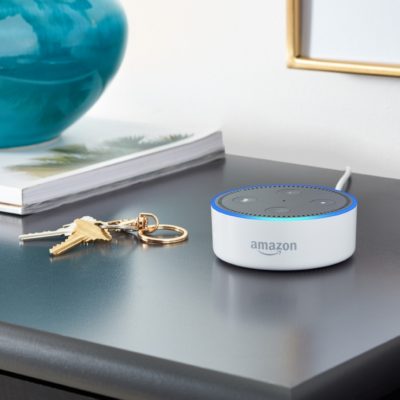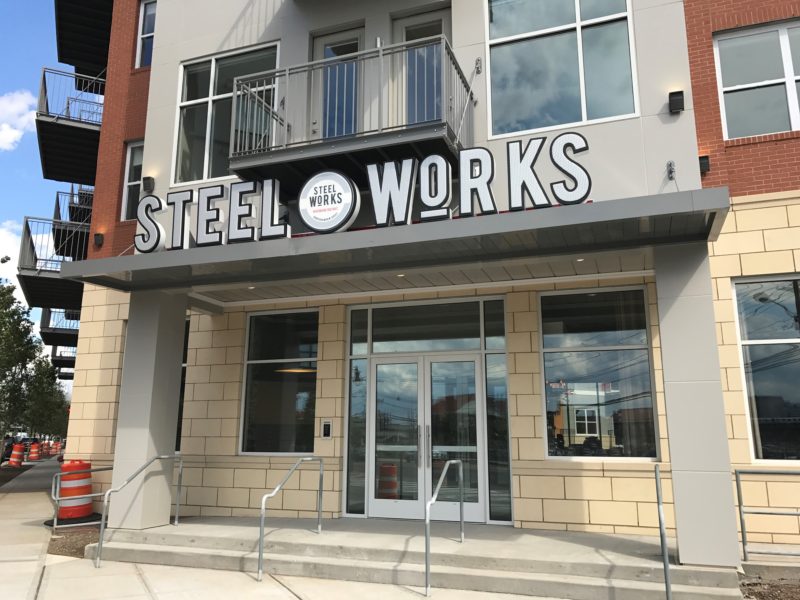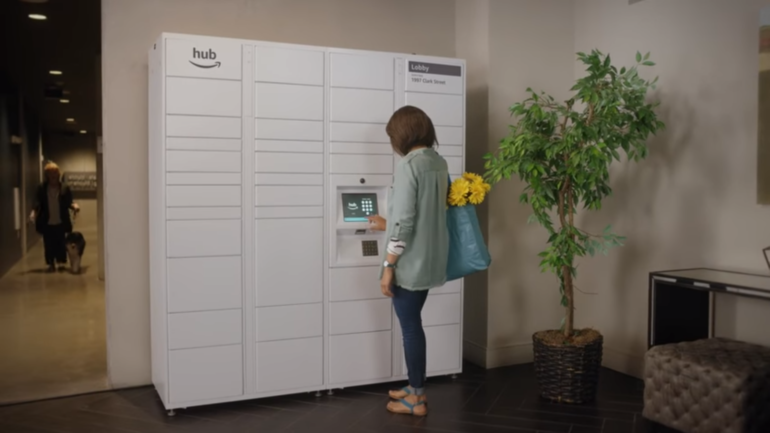Amazon has partnered with some of the country’s largest apartment owners and managers to install smart phone-connected package lockers at hundreds of properties, including some in New Jersey. — Courtesy: Amazon
By Joshua Burd
As cities and regions across the country raced to meet the deadline for the HQ2 project, Amazon made a move that didn’t grab nearly as many headlines.
The company on Oct. 17 detailed a partnership with some of the country’s largest apartment owners and management firms to install its smart phone-connected package lockers at their properties. The landlords — including AvalonBay Communities, Equity Residential, Greystar and Bozzuto Group — are set to install the automated systems at select properties in the coming months.
Collectively, the four companies own or operate more than 55 communities in the Garden State, although it’s unclear which properties will be among the first to roll out the system. But the automated program, known as Hub by Amazon, will allow carriers to deposit packages from all sellers and provide residents with a code that they can use to retrieve the delivery.
It’s the latest sign of the impact that e-commerce has had on the multifamily sector. Developers have sought to include more sophisticated package rooms and concierge services into their new luxury projects in recent years, in an effort to handle the constant stream of boxes coming into their buildings.

“Even the buildings that don’t have a 24-hour doorman will definitely have a concierge for business hours so they can receive packages, at a minimum,” said Denham Apperley, a marketing coordinator for The Marketing Directors. “And in terms of storage, package rooms are just getting larger.”
Other companies, such as San Francisco-based Luxer One, have also sought to provide a solution to the growing need. According to The Wall Street Journal, the average AvalonBay apartment community receives about 1,000 packages a month, up from 650 a year ago. That total has increased 20 to 30 percent in each of the past four years, the report said.
Company executives say AvalonBay is installing the Amazon systems in at least 100 communities over the next year, including some in New Jersey. The builder will consider a broader expansion as it gauges the results.
The locker systems will cost apartment owners about $10,000 to $20,000 up front but could potentially result in savings elsewhere and an improved experience for renters.
At other communities, Amazon is also finding its way into each individual unit. DeBartolo Development and Advance Realty recently opened a new 286-unit apartment building in Harrison known as Steel Works, with each unit featuring a built-in sound system and an Amazon Echo Dot with “Alexa” voice service.

Steve Shaw, a senior development manager with DeBartolo, said the feature stems from a roughly five-year-old mission to incorporate audio into the resident experience. Apartments come with the hardware in place, so tenants need only an Amazon Prime account to begin using the system.
DeBartolo now sees the product as a viable long-term solution after having tried other options such as iPod docking stations and Bluetooth, each of which had their own limitations.
“Based on resident feedback, we were really still looking for what’s the next thing that we can implement,” Shaw said. “So we saw the shift in the market to Alexa and the Echo, and when it came out and we saw the ability to integrate that into not only our unit audio, but hopefully in the future to more of the smart technology in the units themselves.”
That technology could ultimately link to anything from thermostats to light systems and television. Shaw added that the Echo Dot also provides ease of use for shopping online, which ties directly into the need for efficient package receiving. DeBartolo, which has properties managed by Greystar, will be among the developers phasing in the Amazon lockers.

The challenge, Shaw said, “is just trying to make sure that everything talks to each other correctly. We’ve been in situations where we’ve spent a lot of time trying to be IT experts for our residents.”
“But we want to make sure that it’s simple and easy, and that when we turn the unit over to them, they’ve got the capability to make sure everything is tied in and it’s functioning correctly,” Shaw said, “because the last thing we want is our maintenance guys spending days at a time trying to make sure that all this stuff is working and interconnected correctly.”
If all goes well, such products will become must-haves in multifamily projects.
“It will become a necessity as people are touring competitive buildings,” said Apperley of The Marketing Directors. “Let’s say they have five buildings they’re looking at — if two of them have these Amazon products, it’s going to be something that they expect in the next three.”











